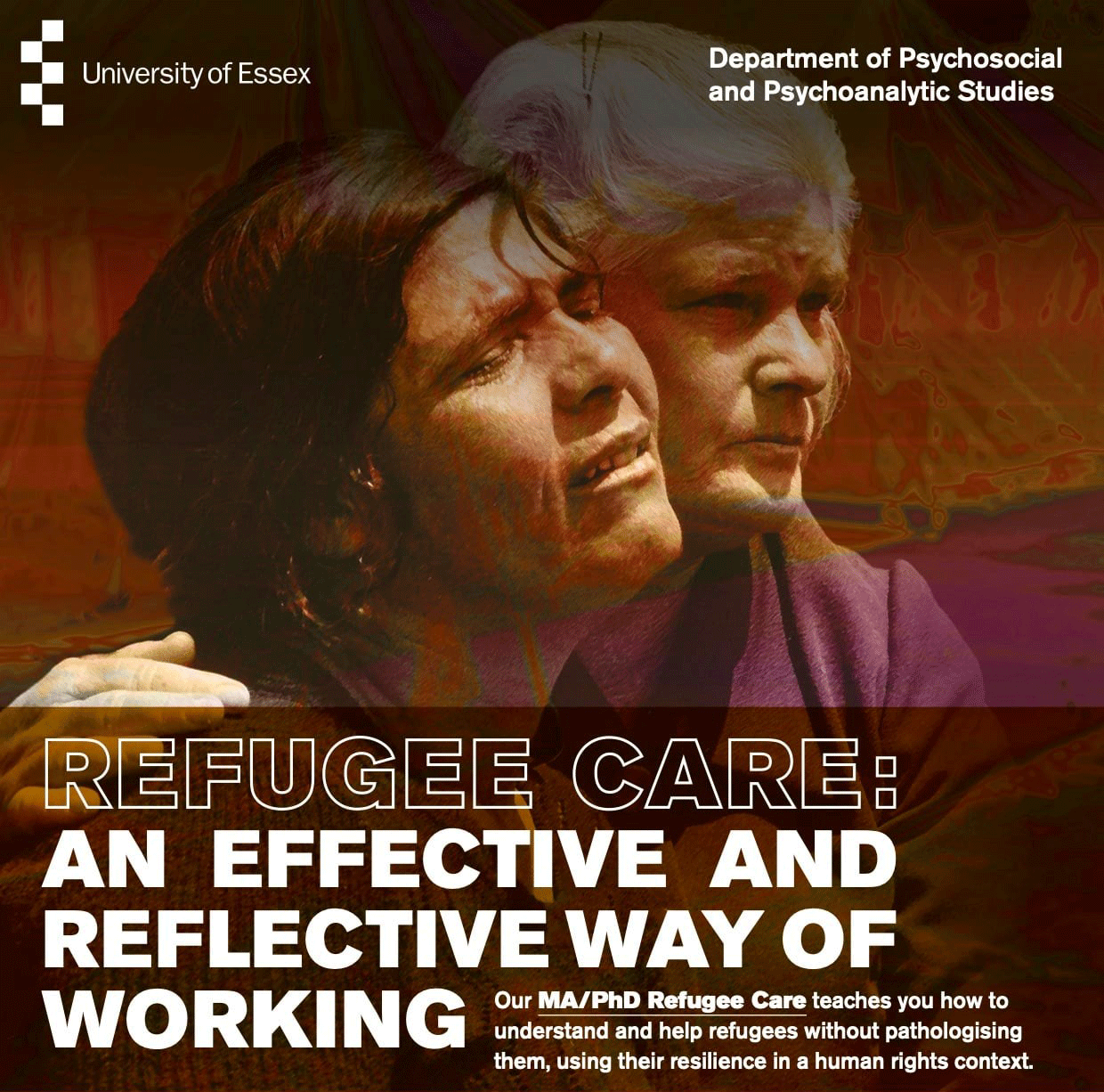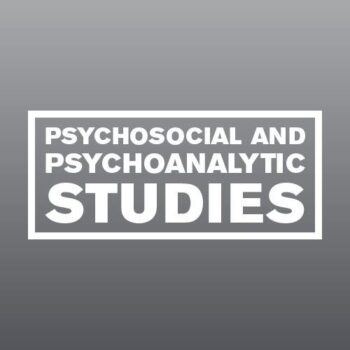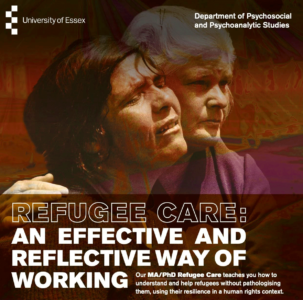Centre for Trauma, Asylum and Refugees
Department of Psychosocial and Psychoanalytic Studies
University of Essex
Our course is based on a close inter-relationship between theory and practice that is achieved through an individualised programme of tuition and supervised placements. It is the only programme of its kind that arranges observations at an Asylum Tribunal where students have the opportunity to observe hearings and later discuss directly with the Asylum Judges the cases observed. Depending on the pandemic circumstances, we may continue with organising an optional part of the course that involves a summer field experience on one of the Greek islands working directly with refugees.
The programme offers an innovative, and yet proven, coherent and comprehensive approach that enables students to ‘work therapeutically’ with refugees (as opposed to offering them psychotherapy), that does not pathologise human suffering, that is based on human rights and is culturally sensitive.
Our approach (which, essentially, is psychosocial) appreciates the wide range of responses to adversity that include not only human suffering and psychological traumatisation, but also the retaining of existing strengths (resilience) as well as the acquisition of new strengths as a direct result of the exposure to adversity (‘Adversity-Activated Development’). The approach is inter-disciplinary in order to address the multifaceted complexity of the involuntary dislocation phenomena.
The course is taught by a team of world experts who are actively engaged in this field nationally and internationally. Professor Renos Papadopoulos, the course founder and director, has recently been given four Awards: by the European Family Therapy Association for Life-time ‘Outstanding contribution to the field of Family Therapy and Systemic Practice’, by the University of Essex for the best ‘International Research Impact’, by two Mexican Foundations for his ‘exceptional work with vulnerable children and families in Mexico’, and by the International Association for Jungian Studies for his lifetime contribution to this field. Our programme is closely associated with several relevant Centres at our University, primarily the ‘Centre for Trauma, Asylum and Refugees’, but also with the ‘Human Rights Centre’, the ‘Transitional Justice Network’, the ‘Centre for Migration Studies’, and the ‘Armed Conflict and Crisis Hub’, as well as with many national and international organisations.
The course is based within the ‘Department for Psychosocial and Psychoanalytic Studies’, which has a very strong emphasis on community involvement and commitment to social justice. Moreover, it is the only course of its kind in the world that contains a Jungian dimension. In 2018 the University of Essex won the coveted ‘University of the Year’ Award in the UK. Refugee Care is not only topical but is expanding and developing rapidly, creating new employment initiatives and opportunities. Our graduates make an impact by applying the innovative approach that our course offers in a variety of contexts and disciplines. Many of our graduates go on to play leading roles in many spheres of this field, e.g. emergency and humanitarian aid, human rights, social and community work, national, education, international and non-governmental organisations, etc.
Suitably qualified persons may move onto a PhD after they complete successfully the Masters programme and without needing to write a Masters dissertation.



